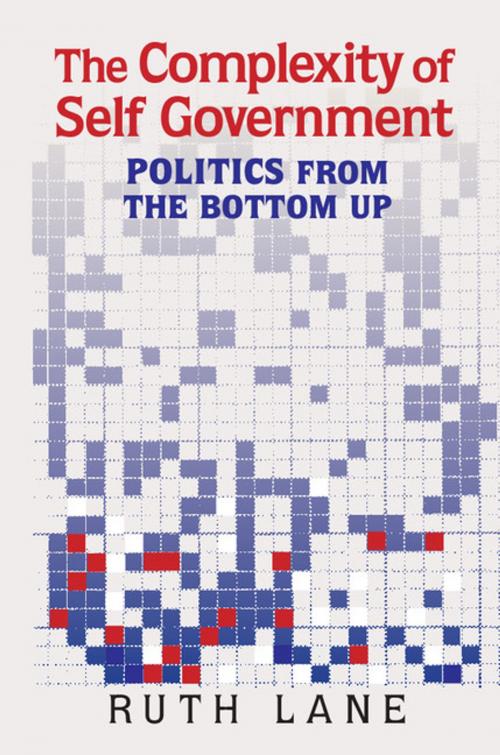The Complexity of Self Government
Politics from the Bottom Up
Nonfiction, Social & Cultural Studies, Political Science, Politics, History & Theory, Government| Author: | Ruth Lane | ISBN: | 9781316732366 |
| Publisher: | Cambridge University Press | Publication: | December 15, 2016 |
| Imprint: | Cambridge University Press | Language: | English |
| Author: | Ruth Lane |
| ISBN: | 9781316732366 |
| Publisher: | Cambridge University Press |
| Publication: | December 15, 2016 |
| Imprint: | Cambridge University Press |
| Language: | English |
The Complexity of Self Government represents a revolutionary approach to political science. Bottom-up theory turns political and social analysis upside down by focusing analytic attention not on vacuous abstractions but on the individual men and women who either consciously or inadvertently create the institutions within which they live. Understanding this practical level of human activity is made possible through complexity theory, recently developed in computer models, but of wider use in understanding everyday human behaviour. To this complexity framework, the book adds social science to give life and colour to the analytical picture: micro-sociology from Garfinkel and Goffman, anthropology from Bourdieu, and non-technical game theory based on Thomas Schelling's microanalytics, to give rigour and bite. Theoretical examples include India's Mumbai, Iran, the marshes of southern Iraq, Berlusconi's Italy, backcountry China, Zimbabwe, and Nelson Mandela's revolution in South Africa.
The Complexity of Self Government represents a revolutionary approach to political science. Bottom-up theory turns political and social analysis upside down by focusing analytic attention not on vacuous abstractions but on the individual men and women who either consciously or inadvertently create the institutions within which they live. Understanding this practical level of human activity is made possible through complexity theory, recently developed in computer models, but of wider use in understanding everyday human behaviour. To this complexity framework, the book adds social science to give life and colour to the analytical picture: micro-sociology from Garfinkel and Goffman, anthropology from Bourdieu, and non-technical game theory based on Thomas Schelling's microanalytics, to give rigour and bite. Theoretical examples include India's Mumbai, Iran, the marshes of southern Iraq, Berlusconi's Italy, backcountry China, Zimbabwe, and Nelson Mandela's revolution in South Africa.















